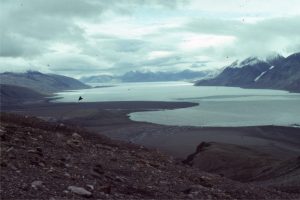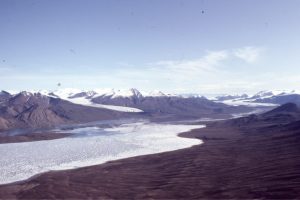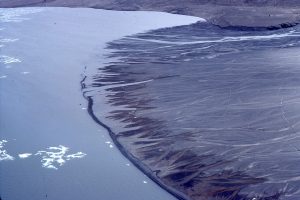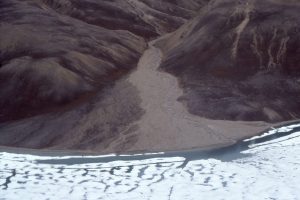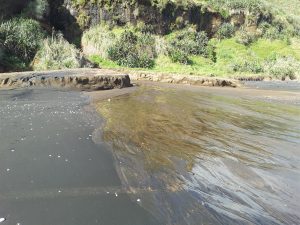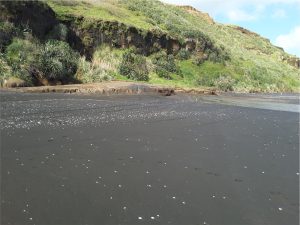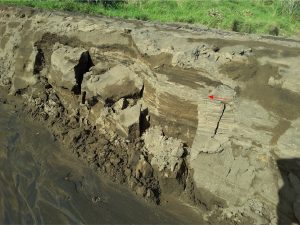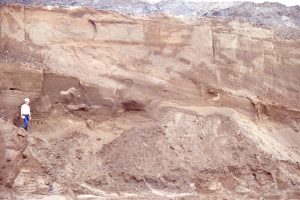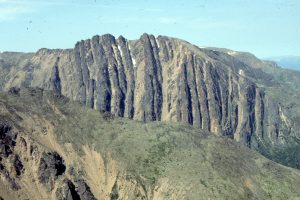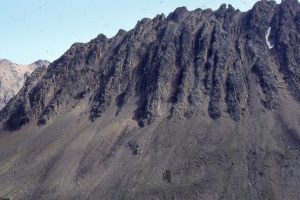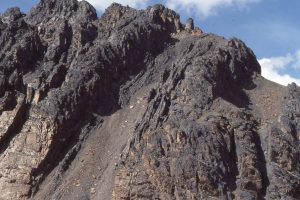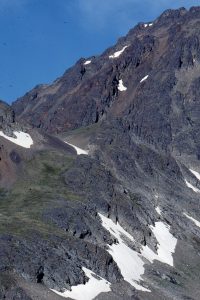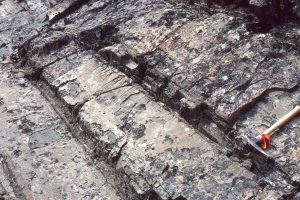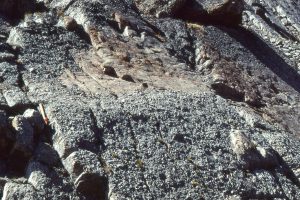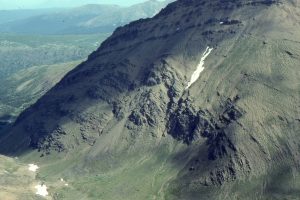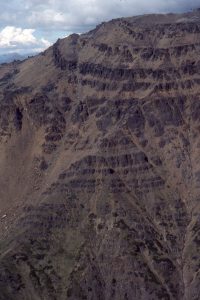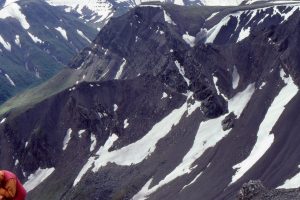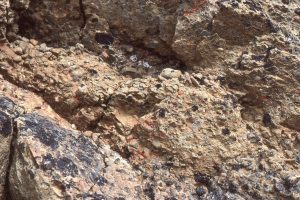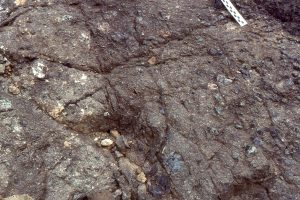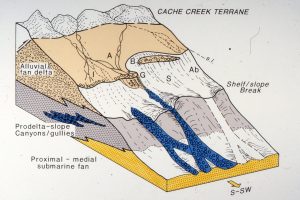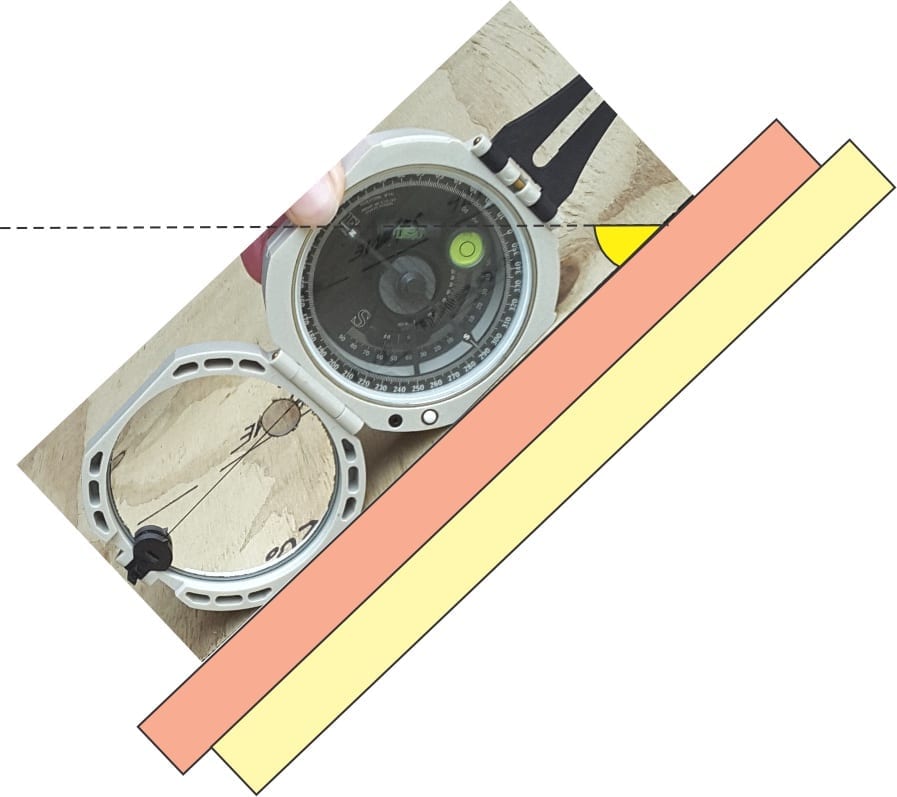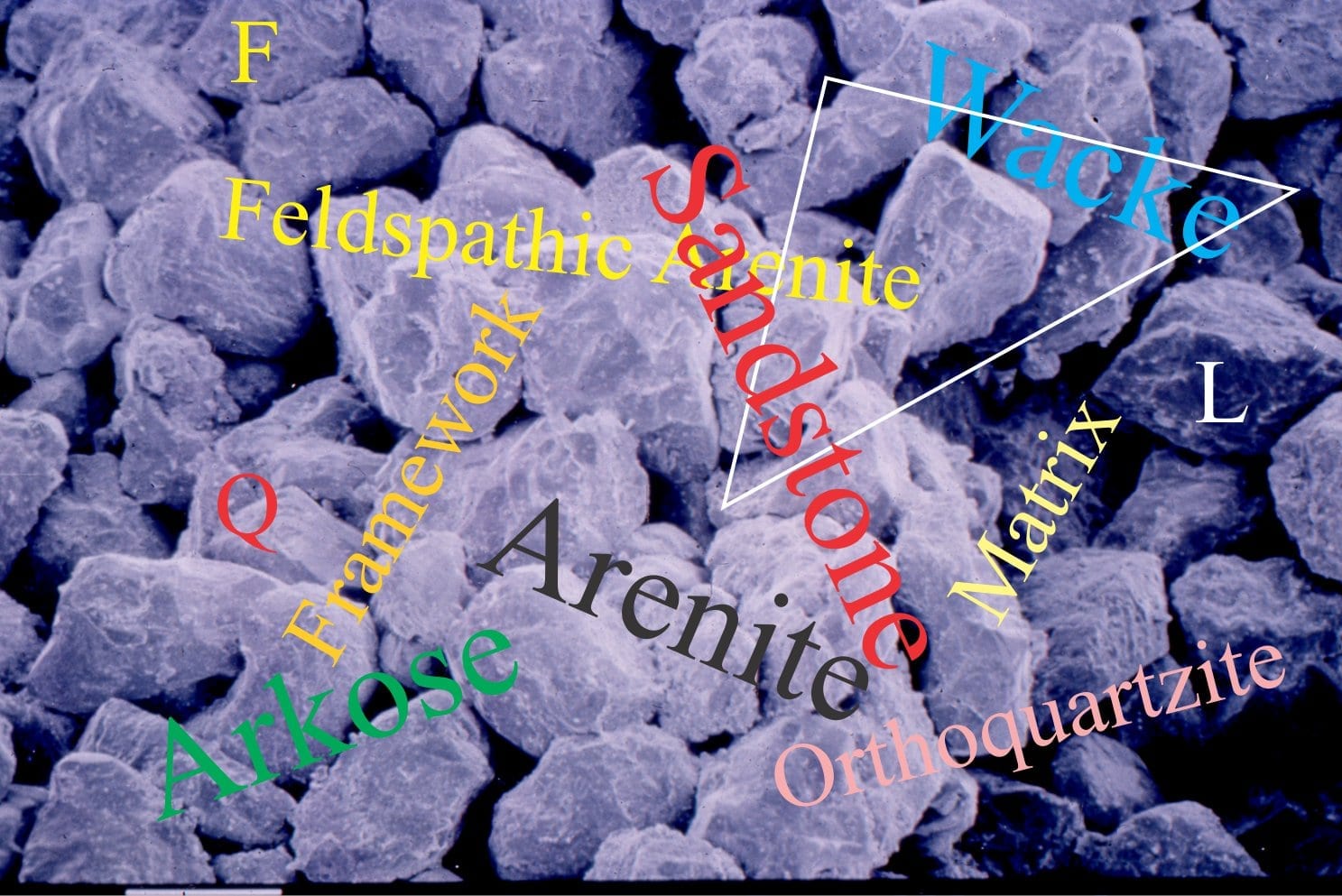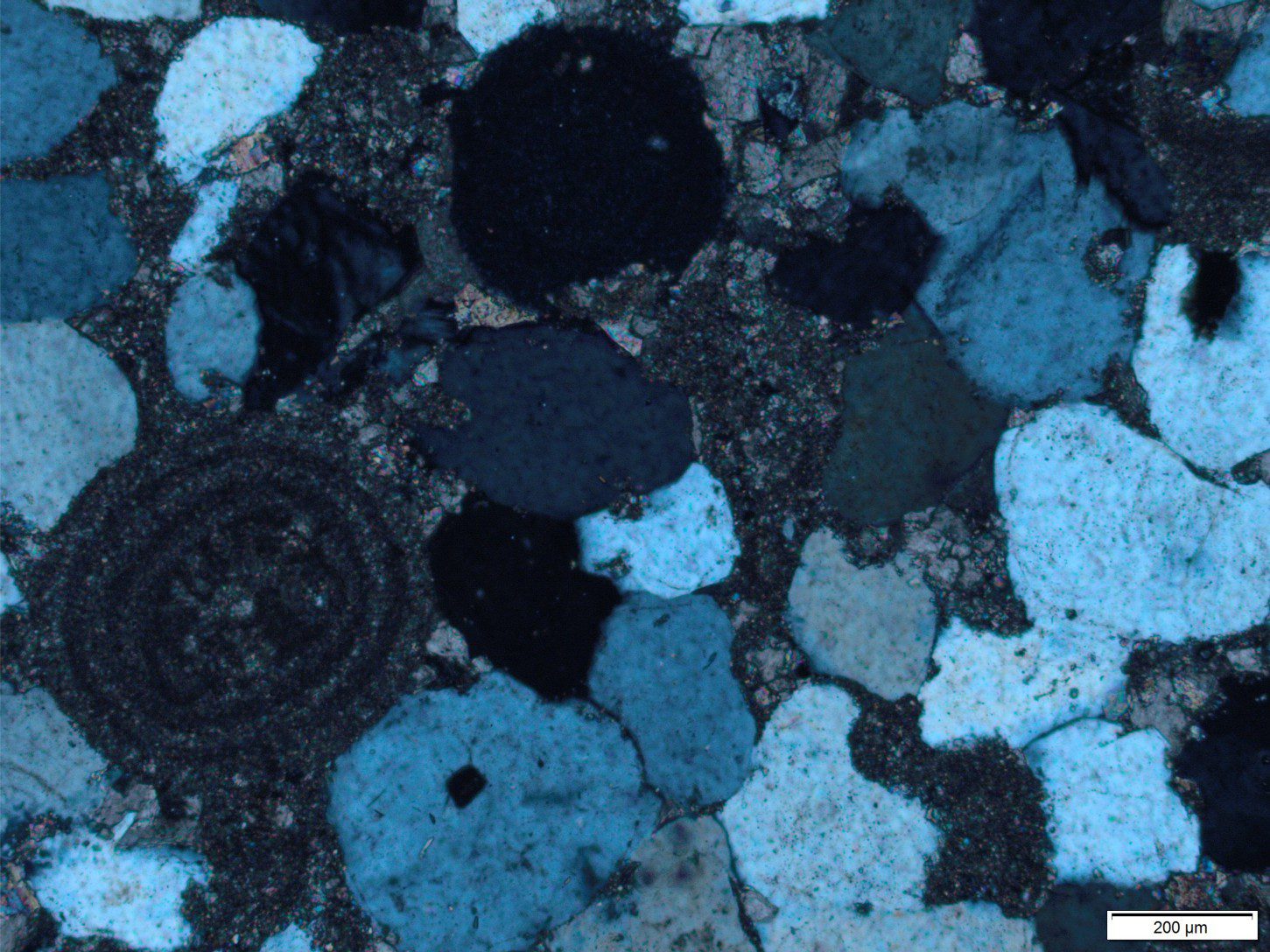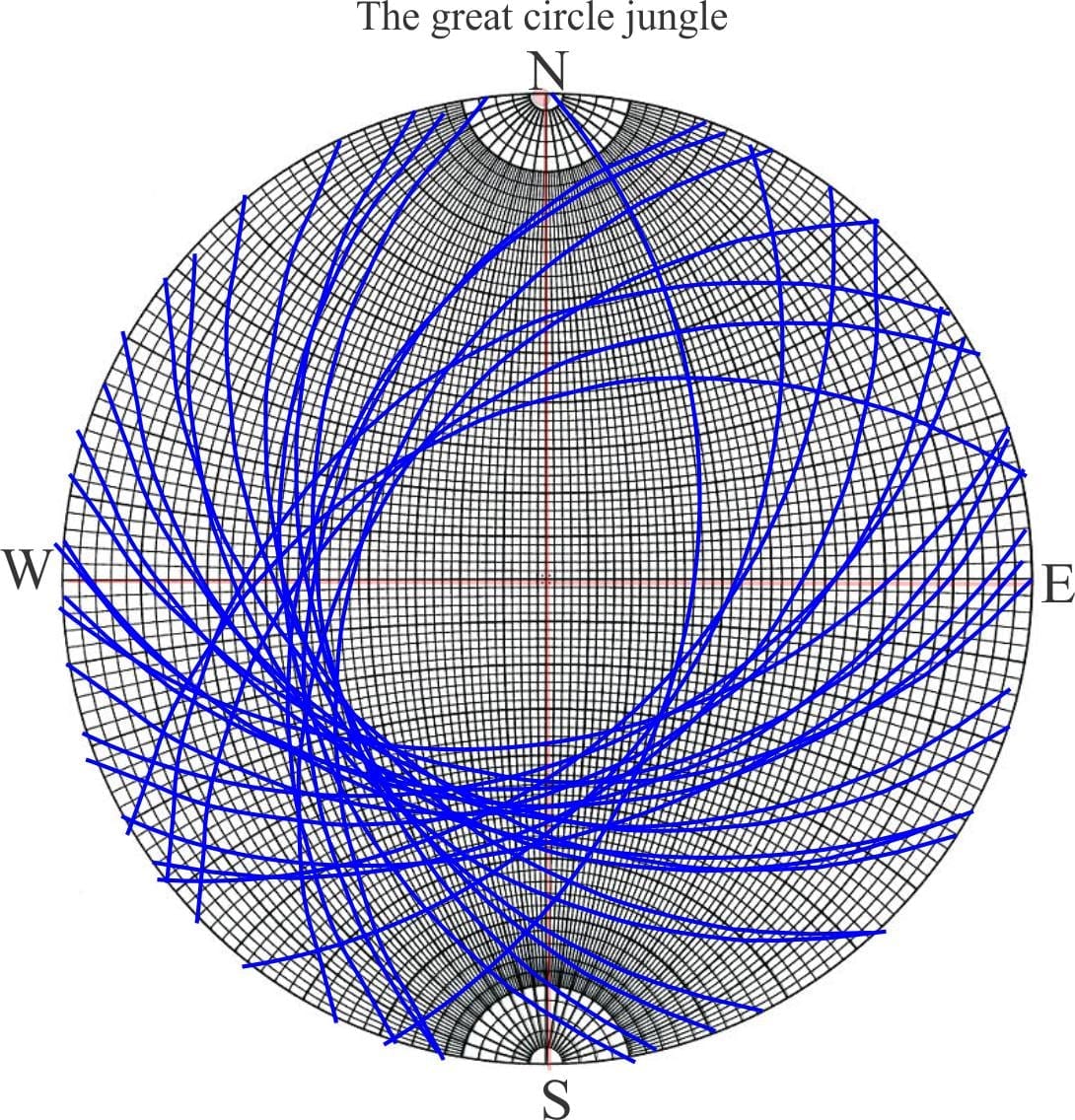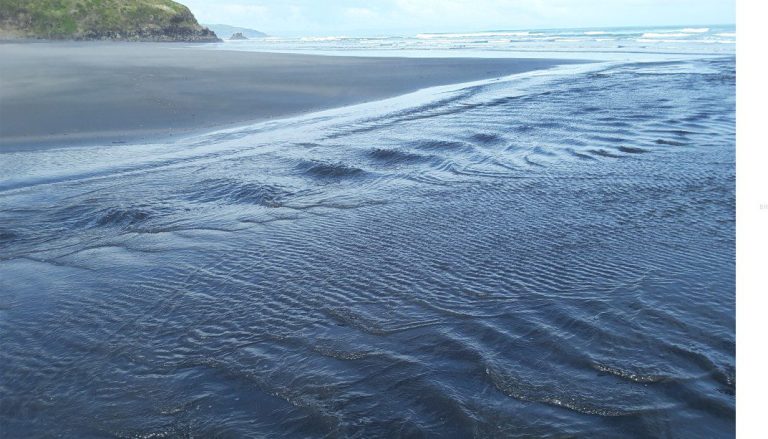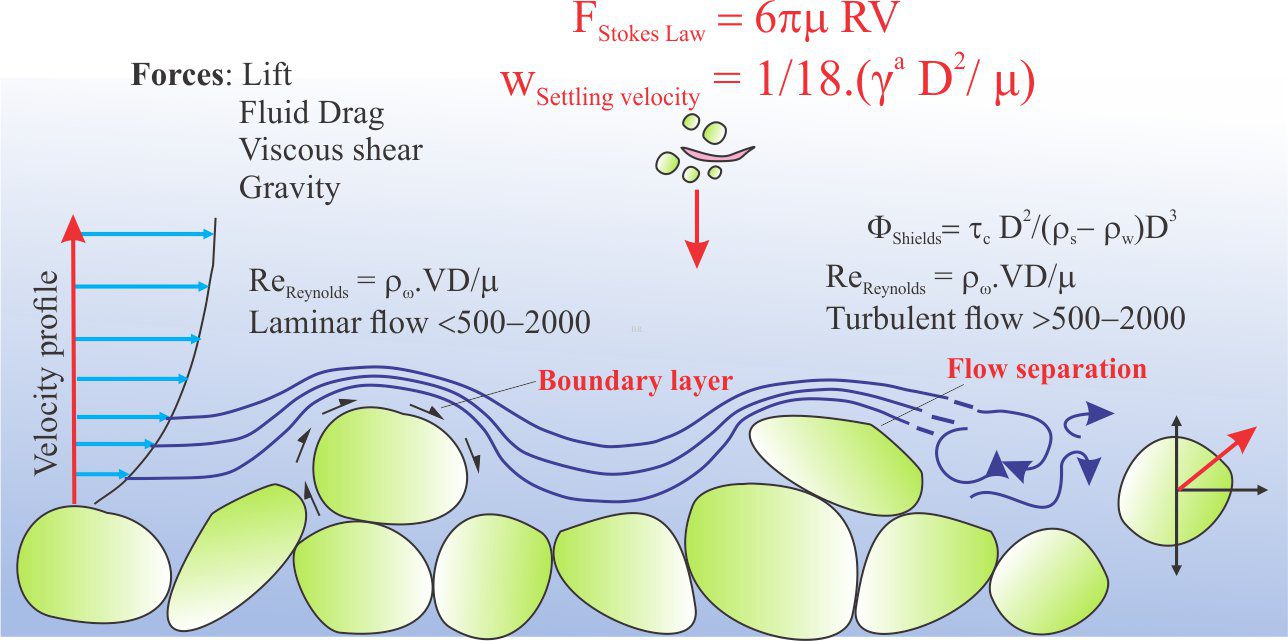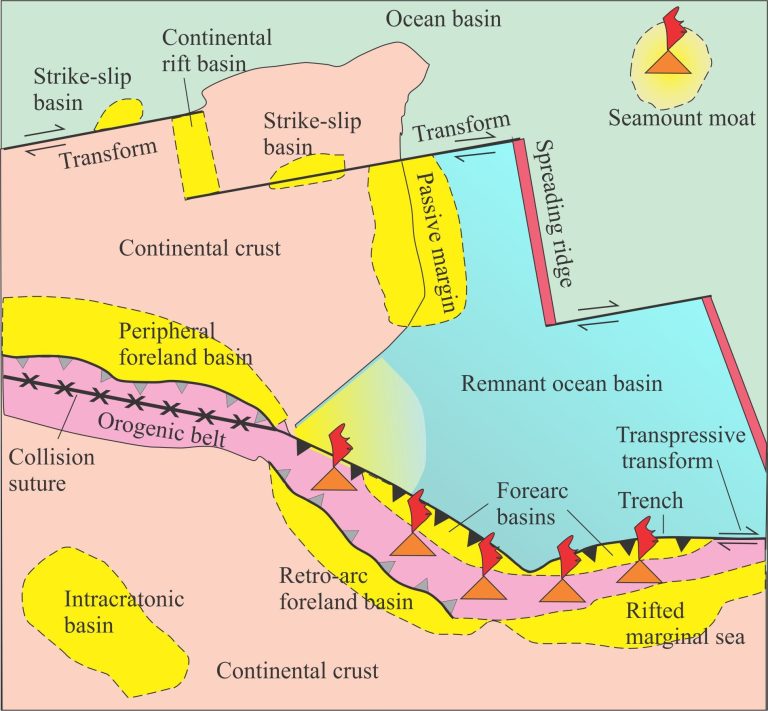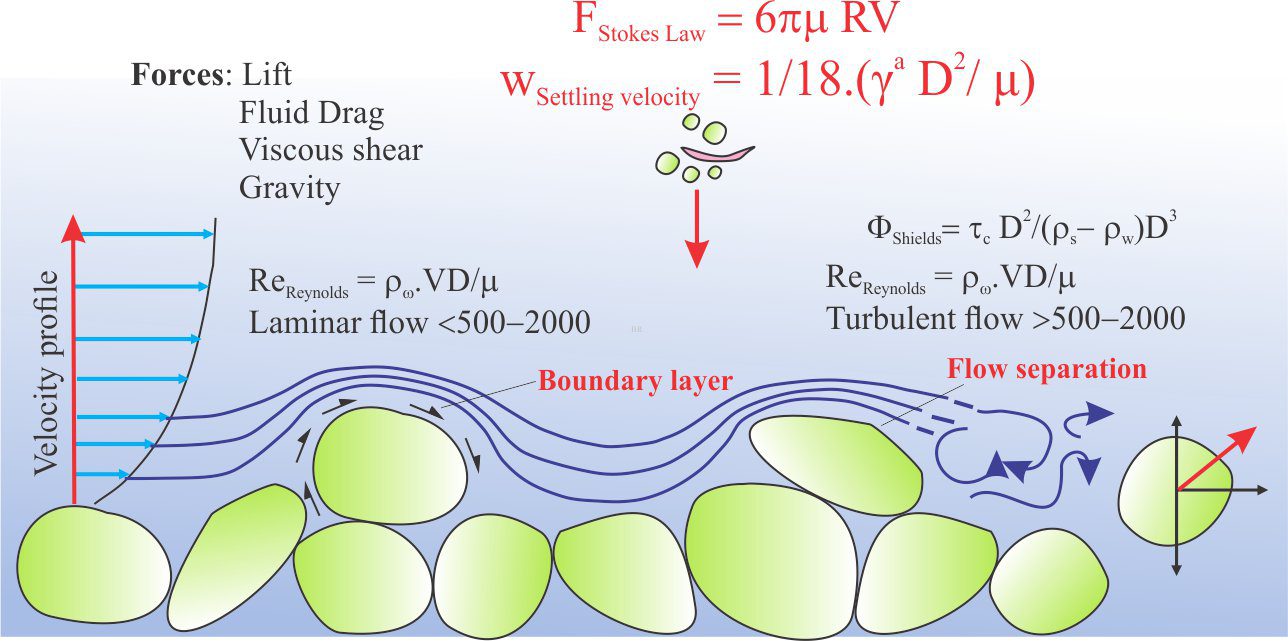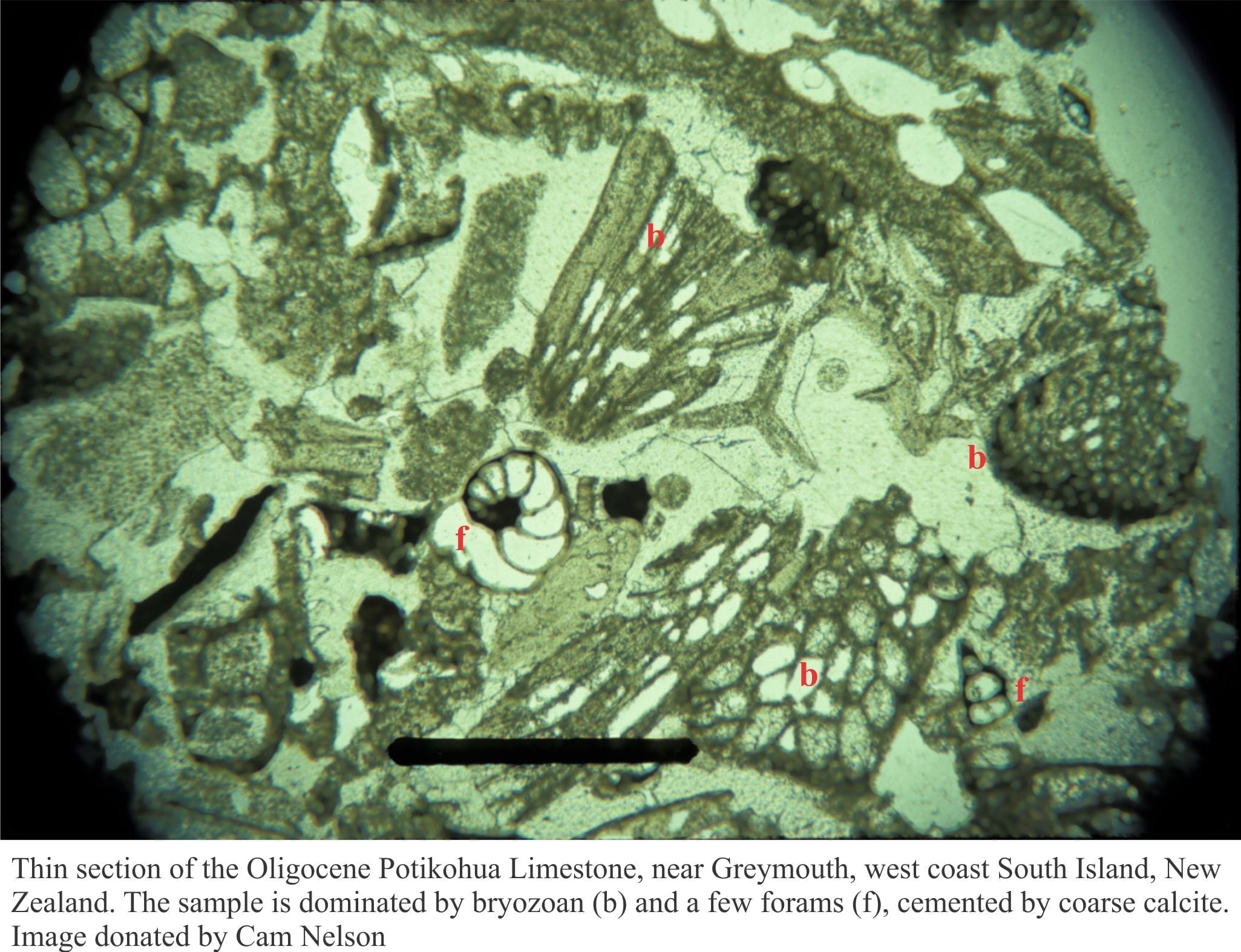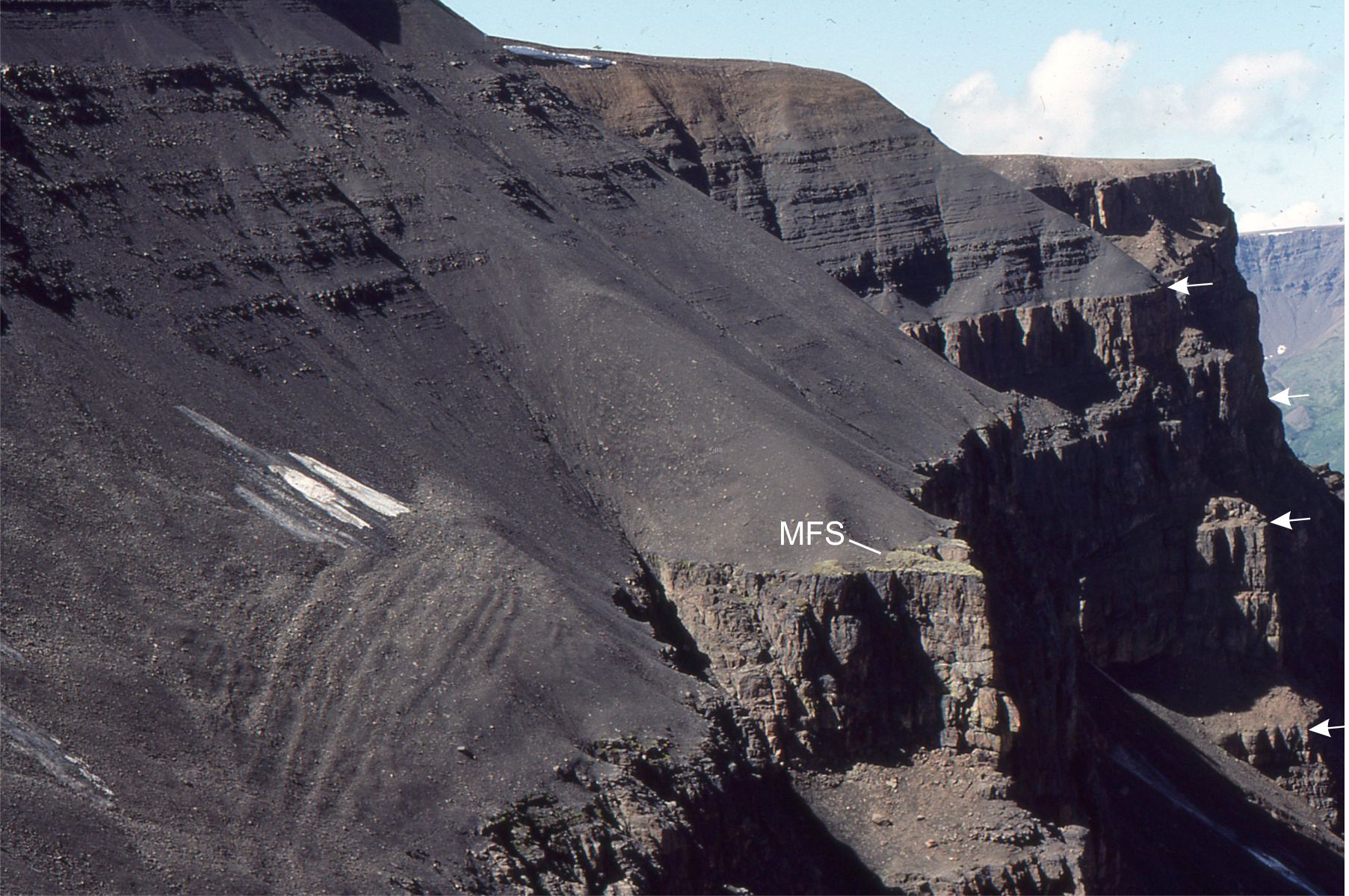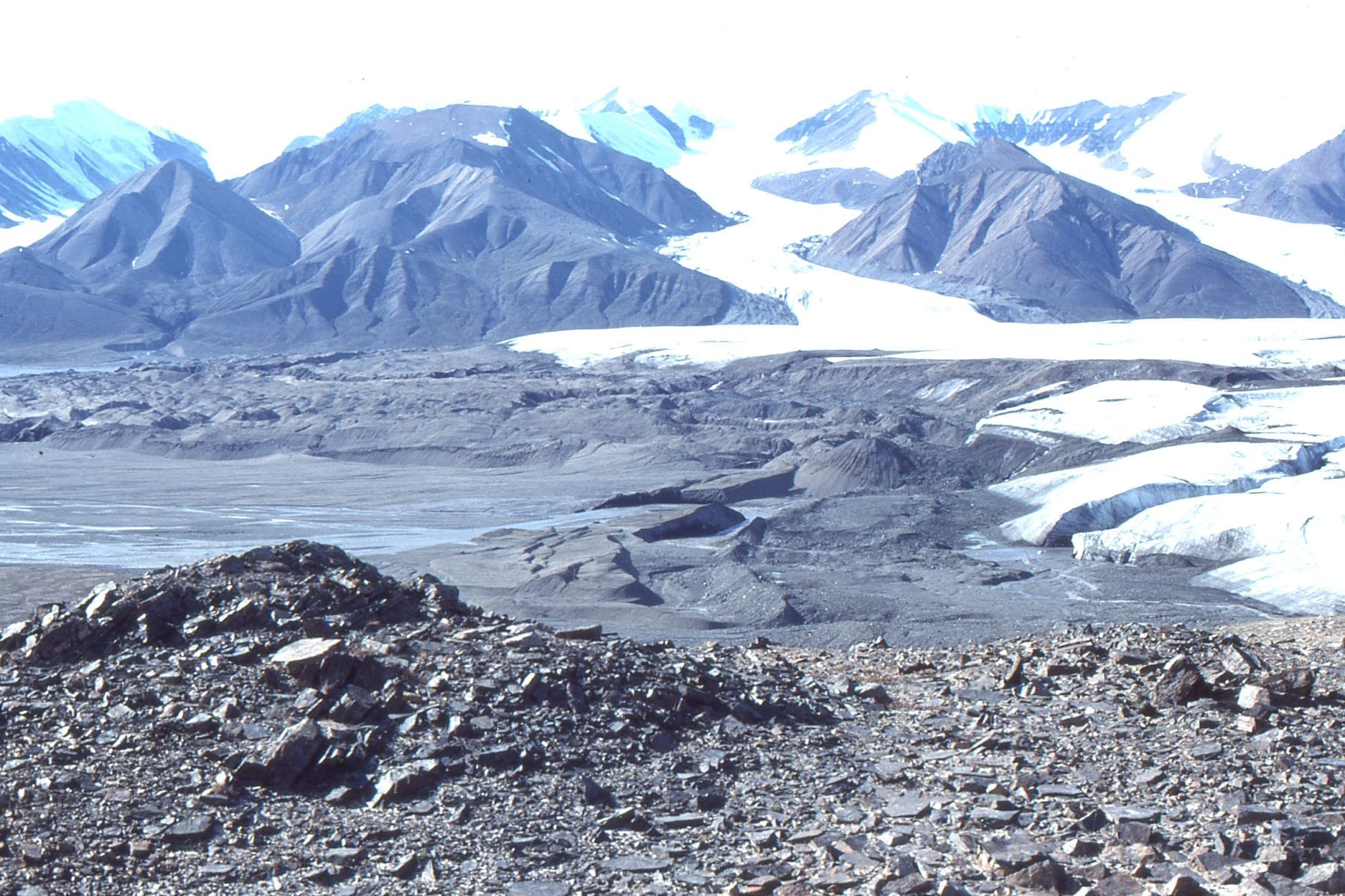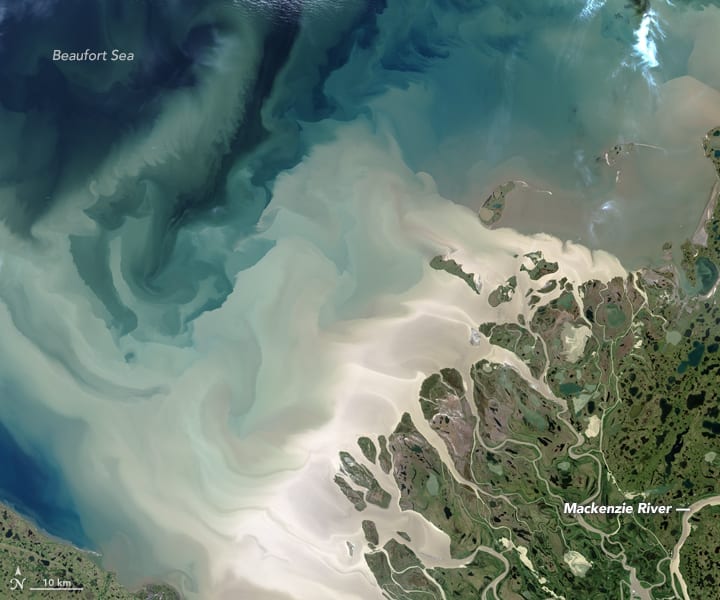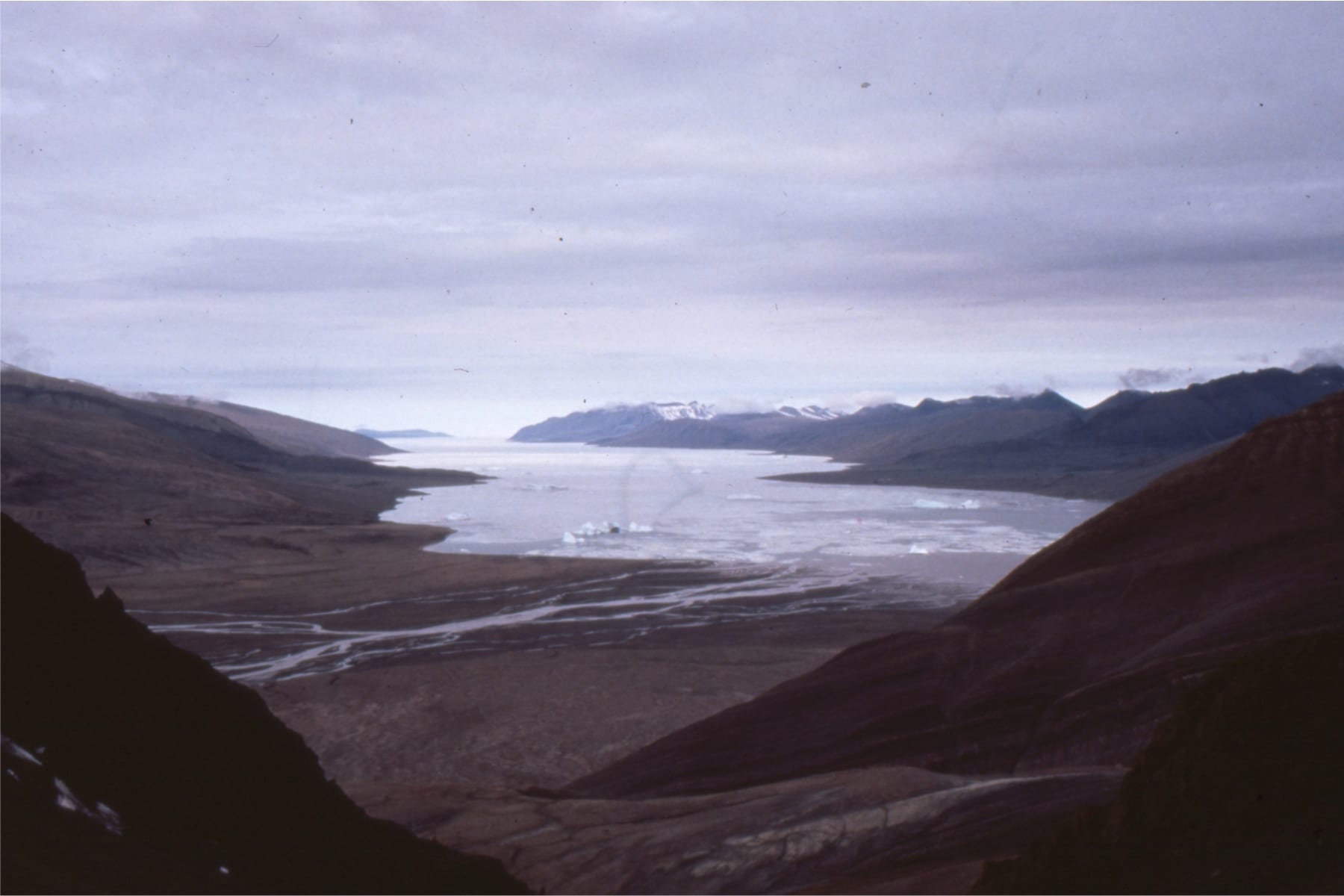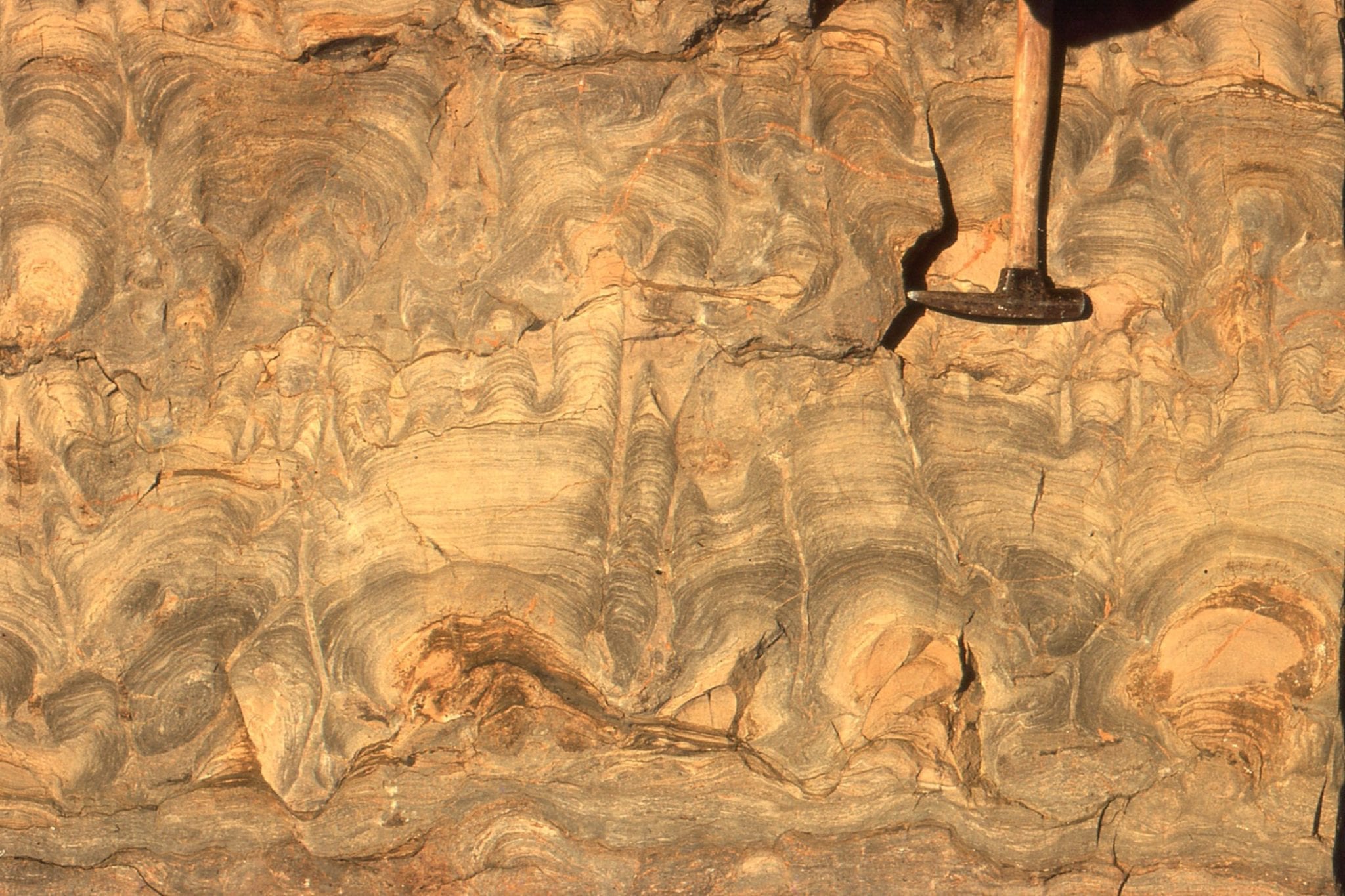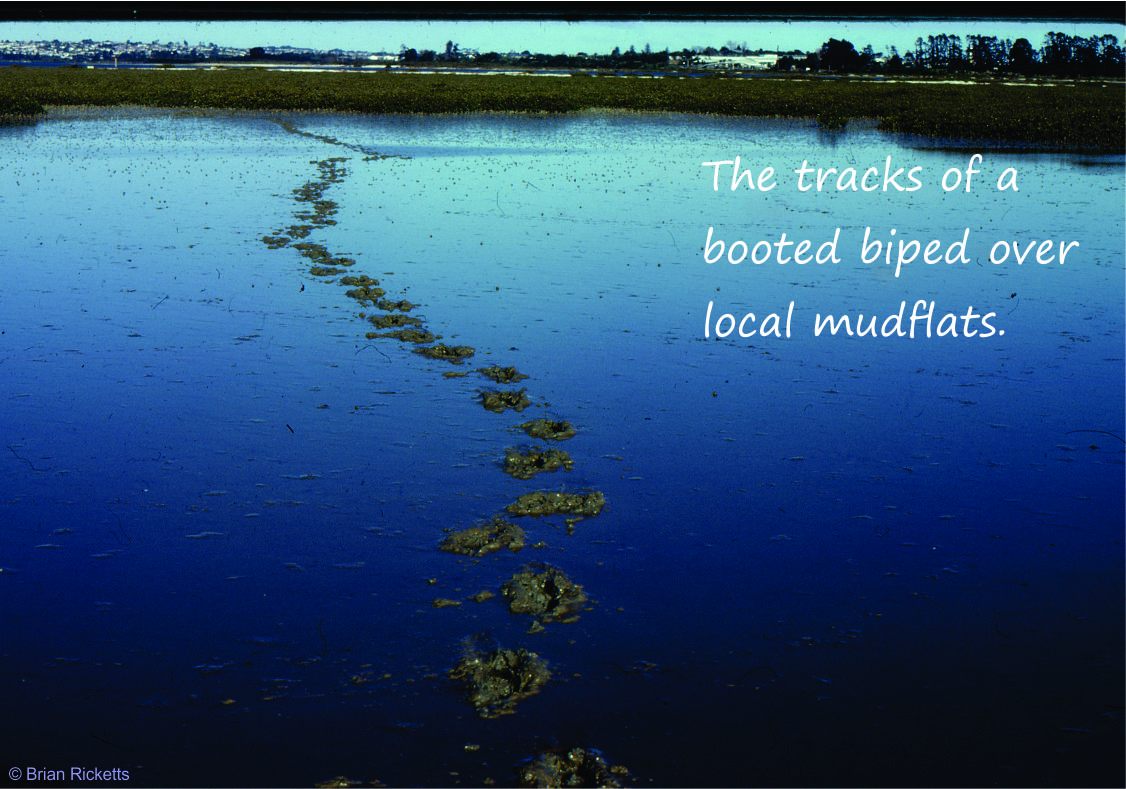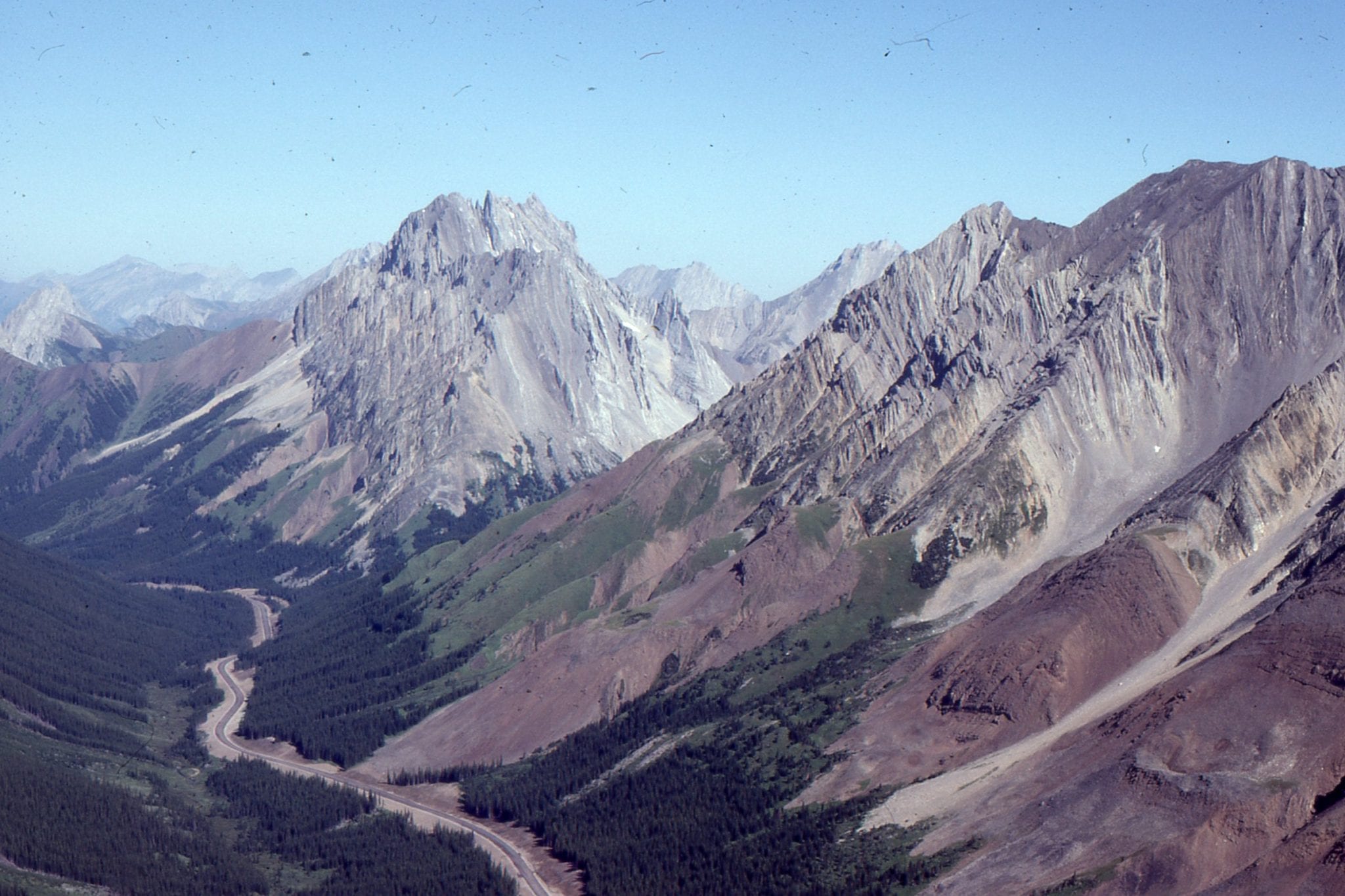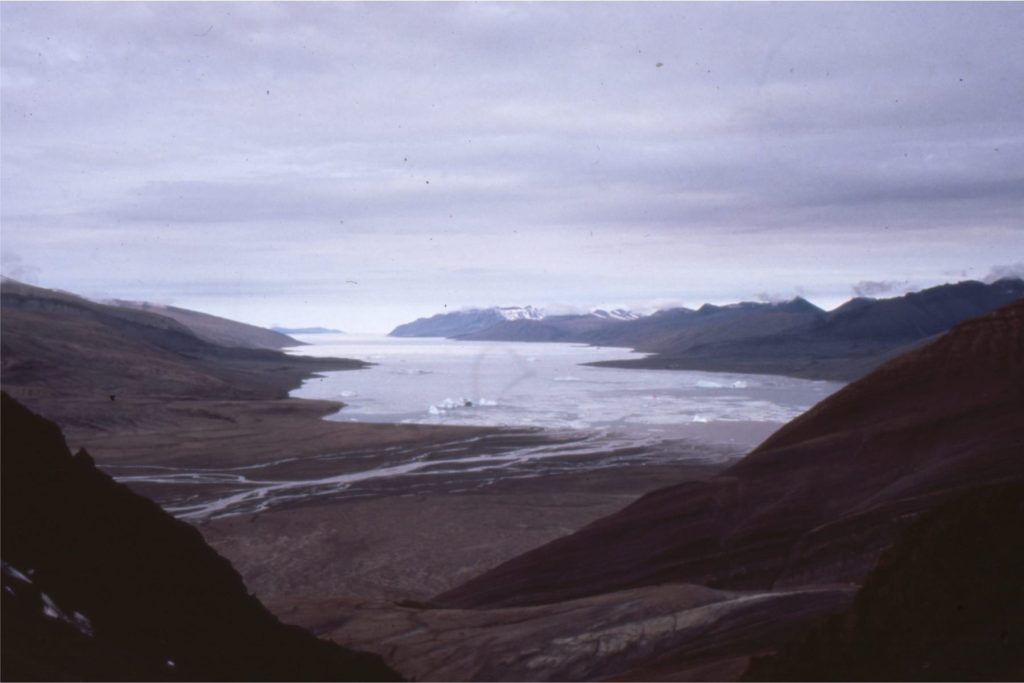
Fan deltas are like alluvial fans except they dip their toes in lakes and shallow seas. So, in addition to the alluvial component, there is subaqueous deposition down a relatively steep, angle-of-repose slope. Sedimentation along the delta front, or slope, commonly produces large, basinward-dipping foresets, one of the defining characteristics of fan deltas.
Fan delta deposits are generally coarse-grained; there is much sand and gravel. Distributary systems tend to be braided. Sediment is supplied to the delta front from where it avalanches down-slope or transforms to debris flows. Gravitational instability may also influence depositional mechanisms.
Fan deltas tend to accumulate where there is a decent supply of sediment; close to steep uplands, active faults, mountain fronts, thrust fronts, glacial lakes and fiords, and pull-apart basins. Deposition outboard of active extension faults can produce spectacular fan delta stacks on the hanging-wall block. Fan deltas associated with thrust faults may accumulate as basinward overlapping packages in the footwall, that are subsequently overthrust. In pull-apart basins, the locus of fan delta stacking parallels strike-slip displacement; often likened to a horizontal stack of dominoes – the Devonian Hornelen Basin (Norway) and Late Miocene Ridge Basin (California) are classic examples.
Here’s a paper on Bowser Basin fan deltas: Ricketts, B.D., and Evenchick, C.A. 2007. Evidence of different contractional styles along foredeep margins provided by Gilbert deltas; examples from Bowser Basin, British Columbia, Canada: Bulletin of the Canadian Petroleum Geologists, v. 55, p. 243-261.
